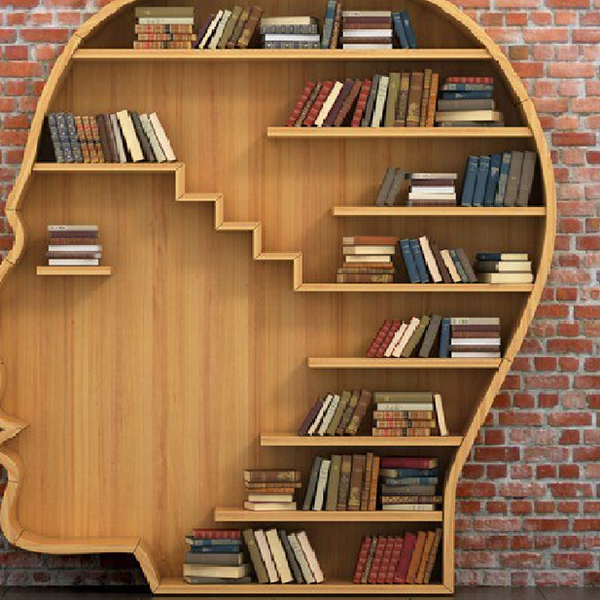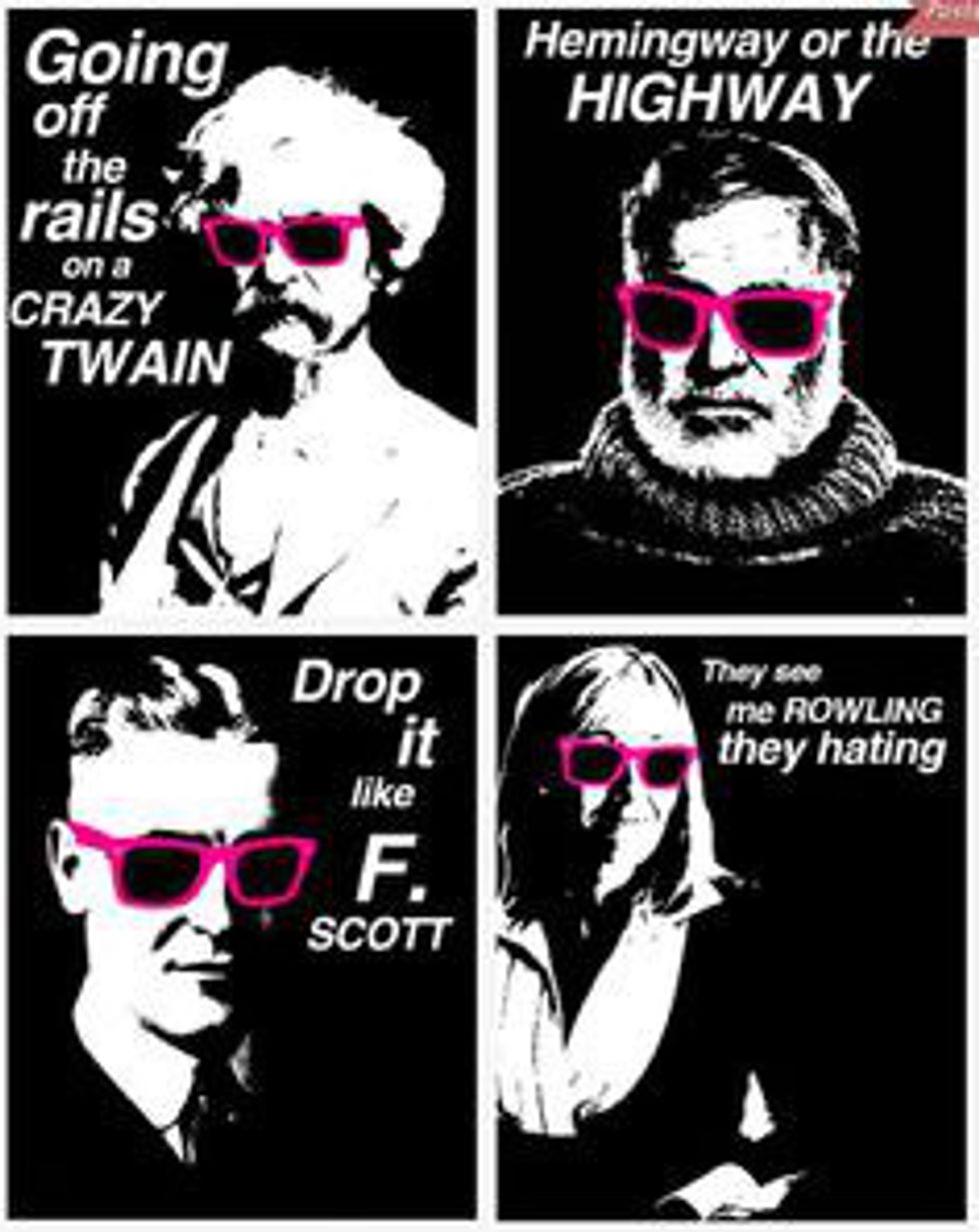I am an English major. I loveliterature. To me, reading and working through literature come more naturally to me than breathing. Literally.
However, as much as it breaks my heart, I get that it is not the wind beneath everyone's wings.
But...
It is still awesome for you, and through this essay that I had to do for a college project, I'm going to explain why. So, whether you love reading, or want to use books as fuel to a fire (sob), I hope this little tidbit of information inspires you to maybe pick up a book by Hemingway, Faulkner or Fitzgerald next time you have a few minutes of spare time.
House, The Bachelor, Criminal Minds, Pretty Little Liars, American Horror Story, when one really thinks about it, over half of everything we watch is centered around the premise of mystery, building relationships with the characters and the storyline, and waiting in anticipation with what happens next. We humans thrive off of that. These are the same skills and concepts put into use when reading and analysing literature, but on a much deeper level since analysing literature requires an individual to be intellectually and emotionally interactive.
Learning how to correctly read and analyze literature is such a wonderful practice that makes for a well-rounded, self-sufficient individual. Not only does it improve grammar, vocabulary, and writing skills, knowing how to interpret given information as an individual, realizing how you personally respond to it, and then questioning it, allows for self-growth and self-thought. Taking it to the next step, an individual can then learn how to discuss their interpretations with a group of individuals, and before you know it, self-growth and intellectual understanding are brewing within the group.
Being able to analyze symbolism and figurative language in literature, and being able to process it and formulate an educated opinion or retaliation, is a very underrated skill that presents numerous remarkable benefits to individuals who acquire it. Analyzing literature teaches an individual how to think, not what to think, it also enables one to confront emotional, personal, and societal struggles, heightening understanding. Lastly, it increases grammar, vocabulary and writing abilities.
An individual who is capable of properly conducting literary analysis is able to think self-sufficiently. A book does not come with a handy “How To Interpret This” guide. Classic authors, classic texts that are heavy in figurative language, symbolism, allegory, allusion and rhetoric are designed to be at a level of complexity where the reader must understand it personally and individually, discovering the meaning for themselves. When the reader personally relates themselves to the themes in the text, the reader is then able to interpret what the author is saying in a way that is intimate and personal to the reader alone. The reader then, as an individual, learns how to think, and not what to think. An article entitled "Reading Literature Makes Us Smarter and Nicer” by Time magazine, states, “Recent research in cognitive science, psychology and neuroscience has demonstrated that deep reading — slow, immersive, rich in sensory detail and emotional and moral complexity — is a distinctive experience, different in kind from the mere decoding of words.” This is because it is training us to formulate ideas for ourselves.
Analyzing literature allows one to confront cultural, societal, or individual conflicts on an emotional level. F. Scott Fitzgerald once stated, “That is part of the beauty of all literature. You discover that your longings are universal longings, that you're not lonely and isolated from anyone. You belong.” I cannot stress enough how drastically true this statement is, especially pertaining to literary analysis. Content heavy literature, classical works filled with emotional purpose, allow readers to confront and face issues in a vicarious manner. Being able to analyze deeply enough to establish an emotional understanding with the text is a very real thing. A psychological study published by Time states that “immersion [into literary analysis] is supported by the way the brain handles language rich in detail, allusion and metaphor: by creating a mental representation that draws on the same brain regions that would be active if the scene were unfolding in real life. The emotional situations and moral dilemmas that are the stuff of literature are also vigorous exercises for the brain, propelling us inside the heads of fictional characters and even, studies suggest, increasing our real-life capacity for empathy.”
Because literary analysis promotes this way of emotional confrontation, an individual is able to understand who they are as emotional and moral beings, they are able to learn who they are through the interpretation of someone else’s words. An individual is able to look back at the course of history, at a social issue, an issue that presented trauma, a sensitive issue, and not view it as a mere recording of an incident down on a page, but as a piece of something they have invested themselves in, mentally worked through, learned to understand, and felt real emotion towards, without having physically been there. Because of this, literary analysis forms an individual around being emotionally aware, cultured, and capable of vast understanding.
Analyzing literature enables one to have better skills in grammar, writing, and vocabulary. When one knows the anatomy of a human being, all of the organs, all of their locations, the material composition, how they relate to one another, and all of the bodily functions, one is then able to then begin to start helping someone ill get better. When we understand how a text is written, the mechanical makeup of a sentence, the different types of sentences, when we know different synonyms and antonyms for words that have different connotative meanings, we begin to know how to take the information we process, and start the writing process for ourselves. One cannot write well if one cannot read well, and one cannot communicate their message on paper efficiently they don’t know how all of these different literary attributes lock into each other. By understanding the mechanics of written art and communication an individual literally enhances all of their own abilities every time they pick up a book.
We all have messages we want to say. We all have things we want to communicate. Being able to analyse literature deeply helps with the process of deciding how one wants to communicate through written text. Is the message supposed to evoke sadness? How deep? How angry? How totally exuberating? Reading enlightens an individual to be able to see all of the different styles and methods they can implement in their own writing to soundly convey the message they want to express.
In wrap up, literary analysis holds a tumultuous array of skills, including thinking for oneself, confronting a concept as a moral and emotional being, as well as enhancing everyday grammar, writing, and vocabulary skills. All of these concepts are attainable through an individual sitting down, closing themselves off from the world around them, and analysing the text deeply, investing themselves into the text that they read, subliminally causing their intellect as a being to expand in all of these conscious ways. Literary analysis allows one to refine themselves through the expansion of emotion, empathy, and the uniting factor of discovering what it means to be human.

























